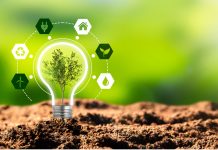WfE is a cross cutting initiative which has the potential for extensive Public/Private Sector Partnership, inter-governmental synergy and cooperative governance within the renewable as well as the Energy Management sector. WfE is rightly positioned to assist local authorities to relieve increasing pressure to reduce electricity demand, diversify and increase their own generation of electrical energy, to provide free basic services to indigent households and to provide sustainable energy systems to energy starved rural South Africa.
WfE provides opportunities for Small and Medium Enterprises, local cooperatives and sustainable local economic development frameworks where communities can benefit from the Local Economic Development aspects and job creation opportunities. WfE will help develop and deploy schemes for the provision of energy for local consumption and the reduction of long lead times associated with the existing over stretched electrification grid at present.
The purpose of the Programme “Working for Energy” is to develop and apply practical approach implementation of sustainable labour intensive Renewable Energy and Energy Management type projects in rural energy starved South Africa. The programme interactively addresses:
- Job creation and poverty alleviation;
- Skills development and enterprise development;
- Reducing electricity demand and overall energy utilization;
- Developing and enhancing co-generation projects and developing new energy sources and efficiency enhancements;
- Enhancing existing infrastructures;
- Developing new green field projects for low cost housing electrification;
- Reducing environmental impact and green-house gas emissions;
The Working for Energy focus areas includes
- Biomass from invasive alien plants and bush encroachment; (downstream processing from the Working for Water initiative)
- Biogas for rural energy access;
- Commercial biogas: generation from agricultural waste;
- Biogas from municipal solid waste;
- Biogas generation from municipal waste water;
- Bio fuels development and implementation in rural applications;
- Provision of solar power for rural off grid or Smart-grid applications;
- Small scale Co-Generation facilities;
- Mini-Grid and Smart Grid Systems application in energy islands;
- Mini Hydro Systems for both on and off grid applications;
- Carbon Fuels;
- Energy audits and energy management planning for schools, homes and businesses (concurrent water audits);
- Provision of energy and water saving technologies for both retrofitting and new works;
- Development and Installation of Biomass ceiling materials for installation as EE improvements for poor or rural households and;
- The development and implementation of Measurement and Verification protocols for DSM projects incorporated under the programme;
Governance Structure
The Government of South Africa is committed through the Constitution of South Africa, 1996, and other legislation such as the National Environmental Management Act (NEMA) (Act 107 of 1998), the Energy Act (Act 38 of 2008) to concepts of sustainable development, environmental protection, energy efficiency and the promotion of renewable energies that are sustainable, cost effective and economically viable.
The Department of Energy is the sector department responsible for the Working for Energy Programme and coordinates with other stakeholders in the water, environmental, energy and public works, Arts and Culture and other sectors to ensure both synergy and full programme integration. The Department of Energy has the line function responsibility to initialise the programme, “Working for Energy. The Department of Energy („DOE”) is partnered with the South African National Energy Research Institute (“SANERI”) to implement the programme.














